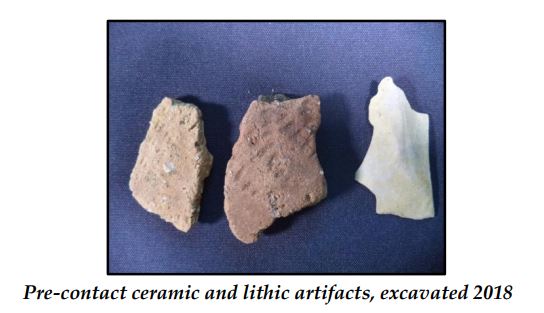Feld schools coordinated by the N.H. Division of Historical Resources’ State Conservation and Rescue Archaeology Program (SCRAP), will take place this summer in Durham, Livermore Hollow and Pillsbury State Park, where the team will canoe to the survey site searching for material that predates Europeans’ arrival.
Field school participants will document activities associated with the sites and learn a variety of skills performed by professional archaeologists, including data recovery techniques, shovel test excavation and documentation, and artifact identification. They can be taken for academic credit, at a cost that varies, or on a volunteer basis, although they request $40 to cover the cost of materials.
Sessions in Durham will take place weekdays June 3-14, June 17-28 and July 1-12 and will focus on 17th-century historic sites. Registration must be completed by May 19. The Durham field school is coordinated by SCRAP and Great Bay Archaeological Survey and is directed by Meghan Howey of the University of New Hampshire.
SCRAP’s Livermore Hollow session takes place weekdays July 8-19 and will focus on pre-contact deposits and features, with opportunities to investigate post-contact deposits as well. SCRAP’S final summer session, at Pillsbury State Park, takes place weekdays July 22-Aug. 2. Canoes will be used to access that survey area, where pre-contact deposits are potentially located.
Pre-contact and post-contact are terms used by archaeologists to distinguish between the time before and after Europeans arrived at a particular location in the Americas.
Thee Livermore Hollow and Washington field schools will be directed by Mark Doperalski and David Trubey from the NHDHR; registration for those sessions closes on May 31. Participants may register as SCRAP volunteers or for undergraduate or graduate credit through Plymouth State University. Volunteers receive the same instruction as credit students.
For more information about each field school, including how to register, visit nh.gov/nhdhr/SCRAP.htm and click on “Upcoming Events & Opportunities” or contact the NHDHR at 603-271-6433.


 Return to the Concord Monitor
Return to the Concord Monitor